JOURNAL ENTRY THE
THE UTAH ASSOCIATION OF CERTIFIED PUBLIC ACCOUNTANTS







Utah Association of Certified Public Accountants
15 W. South Temple, Suite 1625
Salt Lake City, UT 84101
801-466-8022
mail@uacpa.org
www.uacpa.org
Managing Editor
Amy Spencer
as@uacpa.org
2025 – 2026
UACPA Executive Board
President: Dan Frei, CPA
President-Elect: Amy Anholt, CPA
Vice President: Rusty Hansen, CPA
Treasurer: David Peaden, CPA
Secretary: Dan Greer, CPA
Member-at-Large: Clinton Armstrong, CPA
Member-at-Large: Noah Meyers, CPA
Emerging Professionals: Melanie Spencer, CPA
Immediate Past President: Jason Tomlinson, CPA
AICPA Council: Stacy Weight, CPA
CEO: Susan Speirs, CPA
UACPA Staff
CEO: Susan Speirs, CPA
CPE Director: April Deneault
Communications & Marketing Director: Amy Spencer
Member Engagement Manager: Debbie Dujanovic
Cover photo: Jed Morley from Backstory Branding
UACPA Statement of Policy
The Journal Entry is published four times a year by the Utah Association of Certified Public Accountants (UACPA). The opinions, views and articles expressed in this magazine are those of the authors and not necessarily those of the UACPA. This magazine should not be deemed an endorsement by the UACPA or its committees or editorial staff of any views, opinions or positions contained herein. Copyright © 2025 Utah Association of Certified Public Accountants

Atthis year’s AICPA Council meeting in May, one repeat item was that state societies must advocate to Congress for accounting’s inclusion in the STEM (science, technology, engineering, math) programs. The rationale is clear: CPAs rely heavily on mathematics and technology. Achieving STEM status would unlock critical funding and pipeline benefits for the profession.
Continuing on the UACPA theme of image that we have been promoting, the modern CPA should be truly steeped in technology. While we’ve brilliantly navigated shifts in technology over the years’, a challenge remains. A recent survey on artificial intelligence (AI) at a UACPA chapter meeting indicated that more than 40% of attendees rarely or never use it.
At its core, AI mimics human cognitive functions like learning and problem-solving, which translates into powerful new tools for CPAs that automate the mundane and elevate strategy.
In conversations I have had with CPAs across the state, here are key ways AI is already being used:
• Routine Automation: AI eliminates manual data entry thereby speeding up invoice processing, expense management, and transaction reconciliation.
• Enhanced Data Analysis: AI’s lightning-speed processing ability is a game-changer for foresight and risk:
o Financial Forecasting: Analyzing historical data to predict future trends with precision
o Fraud Detection & Audit Support: Continuously monitoring transactions to spot anomalies and streamline complex audit data analysis
AI liberates us by automating transactional work. Future accounting professionals will be doing less boring work. They will be less a number cruncher and more a strategic advisor — a data interpreter providing essential insights for clients.
This shift means our ultimate value rests on uniquely human skills that AI cannot replicate:
• Critical Thinking & Professional Judgment: Analyzing the “why” behind the numbers and applying nuanced judgment
• Ethical Reasoning: Ensuring data integrity and the responsible use of AI outputs
• Communication & Client Relations: Building trusted relationships and effectively communicating complex financial insights.
For our professional community, this is an exciting opportunity. Embrace AI not as a threat, but as an indispensable partner. By actively engaging with technology, CPAs will secure their place in an era of accounting that is more efficient, insightful, and strategic. n
CPAs are essential to the health of our global economies. Our training, ethics, and public responsibility form the backbone of financial accountability. Historian Jacob Soll demonstrates in “The Reckoning” that civilizations flourish when transparent, disciplined accounting practices take root, and decline when they are neglected. This history underscores that CPAs are not simply technicians, they are civic guardians who build and protect public trust and enable progress.
At the heart of the CPA designation lie a few enduring building blocks: technical competence, ethics, integrity, professional judgment, and a commitment to public safety. These foundations begin with mastery of accounting principles, taxation, and auditing. They are reinforced by ethics rules that demand integrity, competency, and objectivity. Through experience, CPAs refine their judgment, learning how to weigh evidence, measure risk, and recommend responsible actions. Above all, CPAs pledge to serve not only their clients but society at large.
When these foundations are put into practice, they grow into strategic initiatives that directly benefit those whom CPAs serve:
• In society, competence and integrity translate into transparency initiatives — financial literacy programs, nonprofit reporting, and advocacy for clearer public disclosures. By teaching individuals and communities how to understand financial information, CPAs empower citizens to make informed and strategic choices about the many financial and economic challenges they face.
• In government, the CPA’s building blocks evolve into oversight and stewardship strategies. Governments that employ CPAs benefit from rigorous audits, effective internal controls, and performance reporting that links dollars spent to real outcomes. This work protects
taxpayer funds and strengthens democratic legitimacy. As Soll reminds us, societies collapse when they lose track of their own accounts; CPAs prevent that erosion.
• In the business community, professional judgment and independence develop into strategic assurance initiatives. CPA audits underpin investor confidence, reduce the cost of capital, and guide boards in risk management. Beyond compliance, CPAs help businesses craft growth strategies based on reliable forecasts and disciplined capital planning. Their ethical mandate ensures that these strategies are designed for long-term sustainability rather than short-term gain.
• In the workplace, the CPA’s building blocks foster decision-support initiatives. By creating dashboards, analyzing cost structures, and embedding internal controls, CPAs enable leaders to make timely, ethical choices. They also mentor teams in personal financial responsibility, extending the benefits of accounting knowledge throughout the organization. This creates a culture where accountability and innovation work hand in hand.
Soll’s historical analysis teaches us that accounting is more than bookkeeping — it is a civic technology that sustains trust and governance. CPAs, armed with their knowledge, extend this technology into every layer of society, government, and commerce. The transformation from competence and ethics into broad strategic initiatives ensures that organizations remain resilient, citizens remain informed, and communities thrive.
In this light, the role of CPAs is both ancient and urgently modern. CPAs remain the guardians of clarity in an increasingly complex financial world, turning professional foundations into public progress. As the UACPA moves forward with an initiative to help our members engage at a higher level with the citizenry at large, we hope these thoughts will help you with your own building blocks. n

BY JED MORLEY, BACKSTORY BRANDING
Asyou know all too well, CPAs are under pressure. Across the United States and here in Utah, you are navigating a confluence of forces that threaten not just how the profession is perceived today, but its long-term value and viability. The talent gap is widening as demand outpaces the supply of qualified and credentialed professionals. Compensation and quality of life expectations are climbing. AI-driven technology disruption is reshaping your work. And new alternatives, from offshoring to alternative licensure pathways, are putting pressure on the CPA credential from the outside in.
Through the UACPA, you already have an advocate working to strengthen your future. Earlier this year, the UACPA partnered with Backstory Branding and OnPointe Insights to launch a research effort unlike anything we’ve done before. We surveyed and spoke with your colleagues, business leaders, and clients to better understand the current and desired role of CPAs in Utah and the Intermountain West.
The study asked a simple but powerful question:
What will it take to enhance the real and perceived value of CPAs now and in the future?
The findings were candid, sometimes sobering, but also encouraging. They reflect what many of you already know from experience — and they highlight a path forward if we act together.
You don’t need a survey to tell you how hard it is to find and keep good people. Globally, 83% of financial leaders say they can’t find enough qualified accounting professionals (CFO Pulse Survey 2024). In Utah, the Department of Workforce Services projects 1,810 annual openings for accountants between 2022 and 2032, with 1,050 of those in the Salt Lake metro area (Utah DWS, 2024).
On paper, supply looks strong. Utah awarded 3,435 accounting degrees in 2025, including 1,997 at the bachelor’s level (CollegeFactual, 2025). But you know better than anyone that the reality is more complicated. Many graduates never pursue CPA licensure. Some move into finance, analytics, or technology. Others leave Utah entirely. Meanwhile, most of the openings you face are not new growth positions but replacement roles created by turnover and retirement.
The CPA Exam pipeline is shrinking, and retirements are accelerating. The AICPA estimates that 75% of public accounting CPAs will retire within 15 years (NJCPA, 2023). That wave will leave a leadership and experience gap at precisely the moment the profession faces more complexity than ever.
Demographic trends compound the problem. Because of the steep drop in birth rates during the Great Recession, the number of college-age students will decline sharply beginning in the mid-2020s. Higher education experts are calling this the “enrollment cliff” (Drozdowski, 2023). At the same time, many young people are questioning whether college is worth the cost. They point to rising tuition, heavy debt burdens, and the appeal of alternative career pathways. Even among those who do choose accounting, a growing share opt out of licensure or avoid public practice altogether.
This double squeeze — fewer students entering college and less interest in accounting among those who do — narrows the pipeline at the very moment the profession needs a bigger one.
You’ve seen it in your own firms. Younger professionals weigh the demands of the CPA path against what they could earn and how they could live in other fields. Utah’s median accountant salary is $75,100, trailing the national median of nearly $80,000 (BLS, 2024). For those who have invested five years of study, endured the rigor of licensure, and worked long hours early in their careers, stagnant or undervalued pay makes the path less appealing.
At the same time, expectations around lifestyle are changing. Younger generations want careers that feel purposeful, flexible, and rewarding. They are far less willing to tolerate 60hour weeks without a clear path to growth. Surveys confirm what you already hear from your staff: flexibility and balance are not perks anymore, they are minimum expectations (Journal of Accountancy, 2023). When firms fail to deliver on both pay and culture, they don’t just risk losing people to competitors — they lose them to entirely different industries.
In focus groups, many of you described feeling underpaid and overworked. That mix doesn’t just lead to burnout. It also weakens the culture of mentoring that the profession has relied on for decades.
Experienced CPAs want to teach and guide, but with constant deadlines and shrinking teams, the time for mentoring often disappears. The result is a generation of younger
left accounting after nine years due to — CPA
“I left public accounting after nine years just due to workload.” —
public due workload.”
“I left public accounting after nine years just due to workload.” — CPA
“I left public accounting after nine years just due to workload.” — CPA
“The accountant that wants to sit at the table wants to have a view into what the visionaries are seeing. The problem is accountants tend not to be able to sell themselves to the business owner as having any vision other than the snapshot. They devolve into the bean counter who just puts the numbers on the ledger.” — Large Business Owner
“We to students away the ‘number cruncher’ who we’re them —
“We hard to away cruncher’ That’s not who we’re teaching them — Accounting Educator
“We work hard to get students away from the ‘number cruncher’ label. That’s not who we’re teaching them to be.” — Accounting Educator
“We work hard to get students away from the ‘number cruncher’ label. That’s not who we’re teaching them to be.” — Accounting Educator
“We work hard to get students away from the ‘number cruncher’ label. That’s not who we’re teaching them — Accounting Educator
“I usually tell people I do taxes. What I’d love to say is I’m a business advisor.” — CPA
“If I’m just here to give you the numbers, then AI is going to replace that. But when you become a storyteller and a trusted that’s where the is.” CPA
“If I’m just here to give you the numbers, then AI is going to replace that. But when you become a storyteller and then a trusted advisor, that’s where the value is.” — CPA
“If I’m here the then AI is to replace that. But you become a and then a advisor, that’s where the is.” CPA
“If I’m just here to give you the numbers, then AI is going to replace that. But when you become a storyteller and then a trusted advisor, that’s where the value is.” — CPA
I’m here to you then AI is to replace storyteller trusted the
CPA get teaching to be.” Educator give numbers, then that’s value —
“We have work to do as accountants. Some C-suite leaders see us as just a cost center, something get through cheaply as possible. And sometimes we undervalue ourselves too, quick to discount our rates or knowledge, as if we’re just a commodity instead of an advantage.” —
“I left public accounting after nine years just due workload.” — students the them — to you going But when become storyteller and trusted the something through cheaply as knowledge, instead
“We have work to do accountants. C-suite leaders see us just a cost center, something to through as as possible. And sometimes we undervalue ourselves too, quick to discount our rates or knowledge, as if we’re a commodity instead of an advantage.” —
“We have work to do as accountants. Some C-suite leaders see us as just a cost center, something to get through as cheaply as possible. And sometimes we undervalue ourselves too, quick to discount our rates or knowledge, as if we’re just a commodity instead of an advantage.” — CPA
“We have work to do as accountants. Some C-suite leaders see us as just a cost center, something to get through as cheaply as possible. And sometimes we undervalue ourselves too, quick to discount our rates or knowledge, as if we’re just a commodity instead of an advantage.” — CPA
“We to do accountants. C-suite us as just a cost get cheaply quick rates knowledge, as we’re a commodity instead
“For years our firm focused on compliance, but we knew we couldn’t stay there. Much of it can be automated now. So we shifted to business clients and built a CFO-style service that helps them interpret numbers, see trends, and make decisions.” — CPA
“In college, my friends think of accounting as just bookkeeping: repetitive and not exciting. But getting past that, you see the difference you can make.” — Accounting Student
“Accounting is the rung: AP, AR, roll. Then comes Controllership, the rung where the CPA credential and expertise matter most. FP&A and roles demand storytelling with data, forecasting, and strategy. That’s CPAs go stay relevant.” — Veteran CPA
is lowest rung: AR, payroll. Then comes Controllership, the where the credential and expertise matter most. FP&A and roles with forecasting, and strategy. That’s where must go to stay relevant.” — Veteran CPA
“Accounting is the lowest rung: AP, AR, payroll. Then comes Controllership, the core rung where the CPA credential and expertise matter most. Above that, FP&A and CFO roles demand storytelling with data, forecasting, and strategy. That’s where CPAs must go to stay relevant.” — Veteran CPA
“Accounting is the lowest rung: AP, AR, payroll. Then comes Controllership, the core rung where the CPA credential and expertise matter most. Above that, FP&A and CFO roles demand storytelling with data, forecasting, and strategy. That’s where CPAs must go to stay relevant.” — Veteran CPA
“Accounting is the AP, Controllership, rung CPA credential and roles demand storytelling data, and strategy. That’s CPAs
“An accountant takes a picture of a specific point in time and it’s a little bitty picture. It would be like walking up to the Mona Lisa and taking a picture of her eye. A finance person looks at the wall she is hanging on, museum is she in, how many people are walking into the museum and how many people can I get to come over and look at the Mona Lisa?” — Large Business Owner
“Accounting the Controllership, rung CPA credential and roles demand storytelling with data, forecasting, CPAs bean is restrictive. A the A finance says, want put a hundred more jar bigger pay going I You thousand beans that’s going
“A bean counter is restrictive. A bean counter counts the beans in the jar. A finance person says, ‘Okay, we want to put a hundred more beans in this jar going to do the trick. I need a bigger jar. How I going to pay for How am going do I see the You to have a thousand beans because that’s the way you’re going to grow the beanstalk.’ Bean counters do that.” — Business Owner
“A is counter put jar need a bigger going pay for going do I You thousand grow the counters
“We have to accountants. Some And we undervalue or if we’re just a — CPA lowest the expertise most. Above that, FP&A CFO bean we to beans jar. This isn’t do the trick. need How am going that? I do this? the need have a don’t Large
bean counter restrictive. A bean counts the the A finance person says, a hundred more beans in this jar going to do the trick. I need a bigger jar. How am I going to pay for that? How am I going to do this? I see the You to have a thousand beans that’s the way the beanstalk.’ Bean counters don’t do that.” — Owner
“A bean counter is restrictive. A bean counter counts the beans in the jar. A finance person says, ‘Okay, we want to put a hundred more beans in this jar. This jar isn’t going to do the trick. I need a bigger jar. How am I going to pay for that? How am I going to do this? I see the vision. You need to have a thousand beans because that’s the way you’re going to grow the beanstalk.’ Bean counters don’t do that.” — Large Business Owner
“A bean counter is restrictive. A bean counter counts the beans in the jar. A finance person says, ‘Okay, we want to put a hundred more beans in this jar. This jar isn’t going to do the trick. I need a bigger jar. How am I going to pay for that? How am I going to do this? I see the vision. You need to have a thousand beans because that’s the way you’re going to grow the beanstalk.’ Bean counters don’t do that.” — Large Business Owner
left public accounting nine years due workload.” —
“I left public accounting after nine years just workload.” — CPA
“I public accounting after nine years just due workload.” —
public after workload.”
“I left public accounting after nine years just due to workload.” — CPA
“I left public accounting after nine years just due to workload.” — CPA
professionals who aren’t gaining the same hands-on training and judgment-building experiences that you may have had earlier in your careers. Left unchecked, this erodes the profession’s leadership pipeline and makes it harder to replace the talent that’s leaving.
“CPA stands for Certified Personal Assistant.” — Small Business Owner
“We hard to students away the That’s not teaching them —
“We work hard to students away the cruncher’ That’s not who we’re teaching to be.” Accounting Educator
“We work hard to get students away from the ‘number cruncher’ label. That’s not who we’re teaching them to be.” — Accounting Educator
“We work hard to get students away from the ‘number cruncher’ label. That’s not who we’re teaching them to be.” — Accounting Educator
“We work hard to get students away from the ‘number cruncher’ label. That’s not who we’re teaching them to be.” — Accounting Educator
“If I’m just here to give you the numbers, then AI is going to replace that. But when you become a storyteller and then a trusted advisor, that’s where the value is.” — CPA
“If I’m here to you the then AI is to replace But when become a storyteller and then a trusted advisor, that’s value is.” CPA
“We work hard to get students away from the ‘number cruncher’ label. That’s not who we’re teaching them to be.” — Accounting Educator
“If I’m just here to give you the numbers, then AI is going to replace that. But when you become a storyteller and then a trusted advisor, that’s where the value is.” — CPA
“If I’m just here to give you the numbers, then AI is going to replace that. But when you become a storyteller and then a trusted advisor, that’s where the is.” — CPA
Technology and globalization are reshaping your work. AI and automation are taking on compliance and bookkeeping tasks at a pace few imagined even five years ago. Offshoring is shifting more routine work to lower-cost markets. These trends improve efficiency and help firms manage costs, but they also remove the kind of entry-level training grounds that once prepared new CPAs for higher-value roles.
“We have work to do accountants. C-suite leaders see us as just a cost center, something to get through as cheaply as possible. And sometimes we undervalue ourselves too, quick to discount our rates or knowledge, if we’re a instead of an advantage.” —
“If I’m just here to give you the numbers, then AI is going to replace that. But when you become a storyteller and then a trusted advisor, that’s where the value is.” — CPA
“We have work to do as accountants. Some C-suite leaders see us as just a cost center, something to get through as cheaply as possible. And sometimes we undervalue ourselves too, quick to discount our rates or knowledge, as if we’re just a commodity instead of an advantage.” — CPA
“We have work to do as accountants. Some C-suite leaders see us as just a cost center, something to get through as cheaply as possible. And sometimes we undervalue ourselves too, quick to discount our rates or knowledge, as if we’re just a commodity instead of an advantage.” — CPA
after years workload.” hard students them — Accounting Educator to you a a that’s the have work cheaply And sometimes knowledge, we’re a instead an advantage.” — CPA
I’m here to you then going But when become storyteller and trusted the CPA get cheaply And sometimes knowledge, we’re instead of
“We have work to do as accountants. Some C-suite leaders see us as just a cost center, something to get through as cheaply as possible. And sometimes we undervalue ourselves too, quick to discount our rates or knowledge, as if we’re just a commodity instead of an advantage.” — CPA
Students and young professionals see these shifts too. To many, accounting looks less stable or exciting than fields like data science or finance, even though these same forces are opening doors in areas such as analytics, forensics, ESG reporting, and advisory services (Singer & Nicholson, 2025; Deloitte, 2023).
The lesson here is not to resist technology but to embrace it strategically. The firms and professionals who move fastest to integrate AI and reposition their value will be the ones who win.
“We have work to do as accountants. Some C-suite leaders see us as just a cost center, something as possible. And we undervalue ourselves too, quick to discount our rates or knowledge, as if we’re just a commodity of advantage.” — CPA is rung: AR, Then comes the core rung CPA credential and matter most. Above that, FP&A and CFO roles demand storytelling with data, forecasting, and strategy. That’s go relevant.” —
I’m give the numbers, that. value — do as Some see a center, we too, to or if just a CPA lowest the credential and expertise Above that, FP&A CFO storytelling with bean is restrictive. bean A finance person to a that? I this? vision. need a because you’re
“Accounting is the lowest rung: AP, AR, payroll. Then comes Controllership, the core rung CPA credential and matter most. Above that, FP&A and CFO roles demand storytelling with data, forecasting, and strategy. That’s where CPAs must go to stay relevant.” — Veteran CPA
“Accounting the rung: roll. Then Controllership, the rung CPA matter most. and roles demand storytelling with data, forecasting, CPAs go — Veteran CPA
“Accounting is the lowest rung: AP, AR, payroll. Then comes Controllership, the core rung where the CPA credential and expertise matter most. Above that, FP&A and CFO roles demand storytelling with data, forecasting, and strategy. That’s where CPAs must go to stay relevant.” — Veteran CPA
“Accounting is the lowest rung: AP, AR, payroll. Then comes Controllership, the core rung where the CPA credential and expertise matter most. Above that, FP&A and CFO roles demand storytelling with data, forecasting, and strategy. That’s where CPAs must go to stay relevant.” — Veteran CPA
“Accounting is the lowest rung: AP, AR, payroll. Then comes Controllership, the core rung where the CPA credential and expertise matter most. Above that, FP&A and CFO roles demand storytelling with data, forecasting, and strategy. That’s where CPAs must go to stay relevant.” — Veteran CPA
The 150-hour requirement was a barrier you know well. For many students, an extra year of coursework — often tens of thousands of dollars — without the immediate payoff of higher salaries sends them elsewhere (Singer & Nicholson, 2025).
“A bean is restrictive. A bean counter counts the beans the jar. A finance person says, ‘Okay, we want to put a hundred more beans in this jar. This jar isn’t going to do the trick. I need bigger jar. How I to pay for How am going to do I see the vision. You need to have a thousand beans that’s the way going to grow the beanstalk.’ Bean counters don’t do that.” — Large Business Owner
“Accounting the roll. Then Controllership, the rung CPA demand data, stay bean restrictive. A put jar going do trick. I bigger jar. How I to pay for that? How am I going to do this? I see You to have thousand way grow that.” Business
“A bean counter is restrictive. A bean counter counts the beans the jar. A finance person says, we a hundred more in jar. This isn’t going do the trick. I need a jar. How am I going for that? How I to do this? the vision. need a beans that’s the way going to the beanstalk.’ Bean counters do —
‘Okay, put a beans this jar to the bigger to pay I see the have thousand way grow beanstalk.’ Bean do that.” — Large Business Owner left to CPA get from the be.”
“A bean counter is restrictive. A bean counter counts the beans in the jar. A finance person says, ‘Okay, we want to put a hundred more beans in this jar. This jar isn’t going to do the trick. I need a bigger jar. How am I going to pay for that? How am I going to do this? I see the vision. You need to have a thousand beans because that’s the way you’re going to grow the beanstalk.’ Bean counters don’t do that.” — Large Business Owner
“A bean counter is restrictive. A bean counter counts the beans in the jar. A finance person says, ‘Okay, we want to put a hundred more beans in this jar. This jar isn’t going to do the trick. I need a bigger jar. How am I going to pay for that? How am I going to do this? I see the vision. You need to have a thousand beans because that’s the way you’re going to grow the beanstalk.’ Bean counters don’t do that.” — Large Business Owner
Large Owner
Understanding the accounting talent pipeline shortages, the UACPA launched a project in 2020 to expand the pathway to CPA licensure. In 2025, the Utah Legislature passed SB 15, Certified Public Accounting Licensing Amendments, allowing candidates to obtain a license with either a bachelor’s or master’s degree. Professional accounting societies nationwide have advanced similar efforts. To date, 23 states have passed legislation, five more are in the process of doing so in 2025, and another 14 are preparing proposals for 2026. While opinions vary on the best approach, the need for more flexible options to attract and retain future CPAs is undeniable.
Clients are also changing. The business leaders who took part in our study said they want more than compliance. They want guidance. They described their ideal CPA as a “financial navigator” — someone proactive, forward-looking, and strategic.
That’s both a challenge and an opportunity. It means moving more of your work “above the line” into strategy, foresight, and problem-solving. It also means closing the perception gap. Larger organizations often default to finance-trained professionals for CFO roles, assuming accountants are backward-looking. Yet you know the numbers better than anyone. Communicating that strength and claiming those roles is essential to the profession’s future.
Across the surveys and focus groups, the themes were clear:
• Many CPAs undervalue themselves, describing their work as reactive or siloed, even as clients see greater potential.
• Business leaders preferred “financial navigator” over “trusted advisor” to describe the role they want CPAs to play.
• Participants described a value ladder from accounting to controllership to FP&A to CFO. Helping more CPAs climb that ladder is critical.
• Clients want more “above the line” work: strategy and guidance, not just compliance.
• Some small business owners admitted they didn’t fully understand what CPA means, underscoring the need for education about the CPA credential and its benefits.
• Both CPAs and business leaders emphasized the need for professional development, not just technical training but communication, leadership, and strategy.
The findings confirm what you already sense: the profession is at a crossroads. If nothing changes, the talent gap will grow wider, fees will be harder to justify, and your influence will erode. But if we act together, the story can be different.
Picture a profession where:
• you command higher fees and pay your people competitively.
• your firms retain more talent because careers feel purposeful and sustainable.
• you reassert your leadership role in Utah’s business ecosystem.
Getting there requires investment in professional development. It requires confidence in your broader value, not just compliance. And it requires building clear pathways upward for younger professionals.
The UACPA is committed to walking this path with you. Beyond CPE credits, the association is building programs that expand leadership, communication, and advisory skills. We are also working to ensure CPAs are recognized not just as compliance experts but as financial navigators who shape the future of the organizations you serve.
When CPAs rise above the line, everyone benefits. Clients gain trusted guidance. Firms grow stronger and more resilient. Careers become more rewarding. And the public gains from a profession that is resilient, ethical, and strategically engaged.
At the UACPA Member Summit on January 9, 2026, at the Grand America Hotel in Salt Lake City, we’ll share a deeper dive into the survey data, the CPA Value Ladder, and the roadmap for enhancing the value of the CPA credential and accounting profession. This is urgent and important work. It’s achievable if the UACPA member community rallies around this initiative. And it’s already underway. n
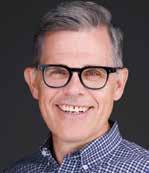
Jed Morley is a brand strategist and founder of Backstory Branding where he works with leaders to build brands that scale by clarifying their purpose, articulating their value and codifying their culture. Jed earned a BA in design from Brigham Young University and an MS in Integrated Marketing Communications from Northwestern University.



Friday, Jan. 9
8 a.m. – Noon
Grand America Hotel, 555 S. Main St.
CPE: TBD
Fees: $300; $200 for UACPA members
Limited to the first 150 registrants

The UACPA is the hub for pros early in their careers looking to network, lead, and grow. Our Emerging Professionals Council coordinates all the fun and valuable activities, training, and mentoring.

FRIDAY, NOV. 7 | 11 :30 - 1:30 | UACPA, 15 W. SOUTH TEMPLE, STE 200
PANEL MODERATED BY SUSAN SPEIRS, CPA
PANELISTS: MOREY CARLSON, CPA - SOFI
ARIANE GIBSON, CPA - UTAH INLAND PORT AUTHORITY
ROB ORTON, CPA - HAYNIE & COMPANY
SHAN EDWARDS, CPA - MONETA
Alumni Academy
Starting 2026 with Intention and Momentum
Lunch & Learn with Mackey Smith
Tuesday, Dec. 2 11:30 - 1:30
UACPA Conference Room, 15 W. South Temple, Ste 200
CPAS IN UTAH

$75,100 AVERAGE ANNUAL SALARY FOR CPAS IN UTAH
These numbers come from Utah.gov, NASBA, ZipRecruiter and PayScale and are based on 2024 and 2025 data.
6,293
NUMBER OF TOTAL ACTIVE CPA LICENSES (2024)
5,650
NUMBER OF CPA LICENSES THAT LIST A UTAH ADDRESS
762
NUMBER OF CPA FIRMS REGISTERED IN UTAH
$90,010
#2 UTAH HAS THE SECOND HIGHEST CPA EXAM PASS RATE IN THE NATION
THE HIGHEST AVERAGE CPA SALARY IN UTAH IS IN OGDEN
BY TINA M. CANNON, UTAH STATE AUDITOR
CPAs understand that independence is not just a professional standard — it is key to building public trust in their work. In government auditing, independence becomes even more essential because we are entrusted with evaluating how public funds — collected from taxpayers and fee payers — are safeguarded, allocated, and expended.
The Office of the Utah State Auditor is uniquely structured to ensure independence in both fact and appearance. Established under Article VII, Section 15 of the Utah Constitution and empowered by Utah Code §67-3-1, my office operates independently of any other branch (executive, legislative or judicial) or division of the state.
This independence allows us to initiate routine audits, conduct compliance reviews and engage in special purpose audits on our own authority. By proactively examining public entities, we fulfill our duty to ensure that state statutes are followed, systemic risks are identified and addressed, and that all public funds are managed responsibly. These proactive reviews further safeguard public resources by ensuring and promoting both accountability and transparency to the public.
Auditor independence is at the core of our profession and is a principle embedded in both the American Institute of Certified Public Accountants (AICPA) Code of Professional Conduct and the Generally Accepted Government Auditing Standards (GAGAS), also known as the Yellow Book, issued by the U.S. Government Accountability Office (GAO). These standards make clear that independence is not optional — it is an ethical and professional imperative.
Independence matters for several reasons:
Audited financial statements provide critical assurance to legislators, regulatory agencies, and the public. An independent opinion assures all, regardless of political affiliation or position, that the information presented is accurate, complete, and free from bias. Without independence, that assurance can collapse, and erode public trust.
When independence is compromised, so is objectivity. Professional judgment must be exercised free from obligations or relationships that could impair impartiality. This is the cornerstone of the
Yellow Book’s requirement that auditors be free from both external and organizational impairments to their independence.
Reliable financial reporting is indispensable in both the private and public sectors. Financial statements are only as reliable as the independence of the auditor who reviews them. Independence ensures that audit opinions are credible. Independence enhances and supports sound decision-making. Such decisions could include areas of public policy, legislative deliberations and even the decisions of individual voters as they make choices at all levels of government.
At its heart, independence serves to protect the public. High-quality, independent audits act as safeguards for taxpayers by ensuring resources are properly managed, transactions are accurately reported and accountability is always demonstrated. They are the mechanism by which elected officials, government entities, and citizens can evaluate the stewardship of public resources.
Auditors are watchdogs of integrity in financial reporting. Our ethical duty extends beyond any relationship — we serve the public interest. Ethical responsibility requires not only technical accuracy but also an unwavering commitment to independence. We avoid circumstances that could compromise, or appear to compromise, that responsibility — a responsibility taken very seriously by every member of my office.
While independence is a professional obligation of the auditor, maintaining it is a shared responsibility. The entity being audited, its governing board and/or its own internal auditors all play roles in protecting and ensuring independence throughout the auditing process.
Independence is fundamental to auditor credibility and cannot be compromised by convenience or pressure.
In our Office, independence allows us to conduct proactive reviews without waiting for complaints. These reviews often identify risks and compliance issues early, enabling corrective actions before they escalate into larger problems. Our reports provide constructive recommendations, not merely findings, to strengthen internal controls and promote effective governance.
When performing audits, we adhere strictly to independence requirements, including assessing personal, external, and organizational impairments. Our role is not to align with any political agenda or administrative preference, but to deliver objective, fact and evidence-based findings that serve our client, the people of Utah.
For CPAs, independence is more than a compliance box — it is at the core of the profession. In public service auditing, it is indispensable for accountability, transparency, and trust. As the Utah State Auditor, I am committed to upholding independence in both action and appearance, ensuring that our work enhances the reliability of financial reporting, continues to protect taxpayers, strengthens and builds public confidence, and promotes integrity and transparency in government.
Independence is not just a professional obligation; it is key to the public’s trust. By guarding it carefully, we uphold the credibility of our work and fulfill our ultimate responsibility, protecting the public we serve. n
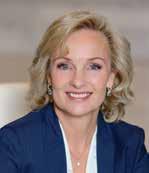
Tina M. Cannon serves as Utah’s 26th State Auditor. She is a graduate of Utah State University’s School of Accountancy at the Jon M. Huntsman School of Business. She holds the historic distinction of being the first woman elected Utah State Auditor and the first independently elected Republican woman to any statewide office in Utah.
BY TODD VALENTINE, BEEHIVE INSURANCE
Atthe end of last year, many Utah employers opened their health insurance renewals and saw the same thing: another big increase. Not a shock, and it’s about to happen again this year. For CFOs and CPAs, that moment has become all too common. Instead of asking, “How do we deal with these increases?” the conversation has become now, “How do we control the outcome and turn this into a longterm strategy?”
Health insurance — and employee benefits in general — can no longer be treated as a routine checkbox activity for just HR. It’s one of the biggest expenses a company faces, and at the same time, it plays a major role in keeping and attracting employees.
The market is shifting quickly. Premiums are rising faster, and just a handful of carriers control most of the options. New approaches — like Association Health Plans, levelfunded arrangements, ICHRAs, and even healthcare captives — are reshaping the choices available. For finance leaders, the challenge isn’t just paying the next invoice; it’s building a strategy that works for the business and the people who make it run.
If you’re business has fewer than 50 employees, you’ve probably lived in the fully insured, community-rated world. It’s straightforward, predictable, and compliant. But it’s also limited — there aren’t many levers beyond plan design.
That’s why many small Utah groups are exploring alternatives:
• Level-Funded Plans: Instead of paying a flat premium forever, you pay for expected claims plus admin and stop-loss. If your claims run “better than expected,” you share the savings. For employers with fewer than ten covered employees, state legislation now prohibits carriers from offering level-funded options to those very small groups. But if you have at least ten employees enrolled on your group plan, level-funded plans should be on your radar.
o UACPA Program: Members of the UACPA have access to a preferred level-funded program with Motiv Health. This program isn’t industry specific, so any active member could be eligible (as long as you meet the ten+ enrolled employees rule). For more information, reach out to the UACPA staff or the plan broker at Beehive Insurance. (Shameless plug — but worth noting.)
• Association Health Plans (AHPs): Since 2013, several associations have been able to create plans for eligible members under a Multiple Employer Welfare Arrangement (MEWA). With strict state and federal requirements, only a handful of AHPs exist in Utah. For employers in construction, manufacturing, retail, or transportation, these plans can help control cost and improve benefits.
• ICHRAs (Individual Coverage HRAs): Instead of sponsoring a traditional group plan, you set a monthly budget and employees use those dollars to buy individual coverage that fits their needs. This gives employers predictable costs and flexibility while shifting plan choice to employees. In Utah, ICHRAs can be harder to make competitive because individual-market premiums are often higher than small-group rates. Still, for employers with a geographically spread workforce or those looking for a simple, defined-contribution model, ICHRAs are worth evaluating.
In short: small employers are experimenting — but each option comes with trade-offs in risk, complexity, and employee experience.
Once you cross 100 employees, the question changes from “What’s available to us?” to “How much control do we want?” Why 100? That’s the point where you gain access to claims and utilization data.
Here’s where many mid-sized employers find themselves:
• Stay fully insured or level-funded. Predictable, but limited control.
• Move to self-funding with stop-loss. This unlocks transparency and customization. You can add navigation tools, carve-outs, or centers of excellence — but you also take on claims volatility and added administrative work.
• Join a group health captive. This option pools risk with other employers inside a captive insurance structure. It offers more stability than going it alone and more control than fully insured. Captives also support long-term planning — a three- to five-year strategy instead of living renewal to renewal.
As organizations grow larger, the equation shifts again. Selffunding becomes the default, but the tools and strategies become more advanced.
• Direct contracting and targeted point solutions become realistic.
• On-site or near-site clinics can reduce medical trend and boost productivity.
• Captives at scale can drive meaningful stop-loss savings.
Large employers in Utah are leaning into data — using claims analytics to identify cost drivers, then structuring benefits around them. It’s not about cutting benefits; it’s about designing them like an investment portfolio. Plan design, network access, payment structures, pharmacy management, and point solutions all become part of an integrated strategy.
Health insurance in Utah is yet again at a crossroads. Premiums are rising, carriers are consolidating, and new models are on the table. The question isn’t if to adapt — it’s how soon, and in what direction.
Some employers will find relief in AHPs. Others will capture savings with level-funded plans. Larger organizations will take the reins through self-funding and captives. And a few will test an ICHRA strategy.
The decisions you make about health benefits will shape not just next year’s budget, but the future of your workforce. Now is the time to look beyond renewals and start building a three- to five-year benefits strategy that aligns with your financial goals. n

Todd Valentine is an Employee Benefits Consultant at Beehive Insurance. With more than two decades of experience in the insurance and benefits industry, Todd specializes in helping employers design cost-effective, competitive health and benefits strategies. He has worked closely with associations to develop innovative solutions such as Association Health Plans, level-funded arrangements, and ICHRA strategies.
BY GARRY HRECHKOSY, CPA
In 2018 I launched my first run for public office. I was seven years into my career at PwC and found out that the incumbent Salt Lake County Auditor was not a CPA. This confused me greatly. I pushed the idea that a CPA should hold the seat and, ultimately, the incumbent decided to take a different job in the state. The county party saw the possibility in the next election and ultimately appointed a CPA to the office for the remainder of that term. Thus began the conversation that there should be professional requirements for elected individuals holding the seat of county auditor. In the 2025 legislative session, HB235 was passed that establishes professional requirements for those holding the position of county auditor in counties of the first class.
Subsequently, I had the opportunity to run to fill a vacancy on the Murray City Council. I was among 13 candidates and was selected by the council after a two-hour live interview. Upon my swearing in, I was immediately thrust into the budget planning for the following fiscal year. Due to my background and experience, I was able to hit the ground running. My experience and credentials became an asset for the other members of the council. They were able to to rely on and bounce ideas off me. They knew that I could read and understand the numbers quickly, providing them with insights and alternatives that made the process move smoothly and quicker. I found that each member has his or her own strengths, and a strong financial understanding was the aspect that I contributed. I ran for re-election and ultimately came up short. But let me be clear, I learned a ton.
Campaigning is not for the faint of heart. It takes a lot of work. In my re-election campaign, I knocked on more than 5,000 doors personally and raised more than $25,000 through calling donors. It will push you out of your comfort zone, but win or lose, the experience will be completely worthwhile. I met my neighbors, I met business owners. I met people from all walks of life, and I am a better human,
father, husband, and CPA for it.
As I campaigned, I realized the CPA designation was and is not widely understood. Not many people understood that being a Certified Public Accountant means more than filing taxes. It means that you are educated, trained, and held to the highest level of ethical standards. Getting the word out about CPAs has been a mission for me each time. I firmly believe that we have a lot to offer. In the State Legislature there is one CPA. Think about that; the people developing tax law are not trained in taxes and accounting! Although the data is not completely up to date and real time, in the United States Senate and House of Representatives, there are fewer than 10 CPAs. Of 535 members, less than 2% are CPAs. That number is staggering.
I am calling on each of you to think about what legacy you want to leave and where you may be able to impact the lives of your neighbors. I believe that we have an obligation to use our skills and training to serve our fellow human beings. We need to ensure that we are showing why we as CPAs are tasked with some of the most sensitive information and how we can provide rational, thoughtful insights that can benefit any governmental entity. This is our chance to shape our school districts, cities, state, and country. Join me in this endeavor. It may seem overwhelming, but I assure you that it is worth every minute spent. n

Garry Hrechkosy, CPA, is the the VP of accounting at MX Technologies. He served on the Murray City Council. He previously ran for Salt Lake County Auditor in 2018. Prior to MX, Garry spent nine year with PwC in assurance. Garry lives in Murray with his wife, Jill, and three daughters. They are expecting a son in December.
Just like a good peanut butter and jelly sandwich, insurance and risk management work better together.
When you purchase CAMICO’s Accountants Professional Liability insurance , you are not just insuring your business. You also have access to CPA-focused risk management services and resources — such as unlimited guidance from in-house specialists, education and training, an online library of loss prevention resources (sample letters, articles, archived issues of CAMICO’s newsletter, alerts, and much more), and proactive claims support. With more than 39 years of experience protecting CPAs there is very little that CAMICO’s team of experts hasn’t seen. Visit www.camico.com to learn more. What CPAs say about CAMICO.

BY HAYNIE & COMPANY
With Dave Peterson’s and Robert Jensen’s retirement, Haynie enters a new chapter in its journey, one marked by continued growth and a commitment to the values that have defined our firm for decades. Their departure signals not an end but a transition, passing the torch to new leadership while honoring the lasting impact of their vision and guidance.
Since 2015, under the leadership of Dave and Robert, Haynie has undergone a remarkable transformation. Their influence ushered in an era of strategic expansion, stronger internal structure, and a deepened commitment to excellence in client service. Together, they helped shape a firm known for integrity, innovation, and people-first values.
Kent Christensen, now serving as Co-CEO alongside Nick
Warnick, reflected on the influence of Dave Peterson’s leadership and his instilled priorities.
“Dave always emphasized that people come first — whether it’s our clients or our employees,” Kent shared. “That’s something he instilled in me early on, a principle I carry with me today. Even if a decision feels like a short-term loss, if it means taking care of people and building trust, it will always lead to long-term success. That has to remain our top priority.”
Robert Jensen brought a different, but equally powerful, influence to Haynie’s evolution, embedding financial discipline and operational structure into the firm’s DNA.
“Robert brought a level of professionalism and structure that we didn’t have before,” Kent noted. “From a finance and

operational standpoint, his impact laid the foundation that we can now grow on.”
Together, Dave and Robert helped build a culture rooted in trust, accountability, and long-term thinking principles that continue to shape Haynie today.
Today, Haynie is recognized as a respected leader in the accounting world. With offices across multiple states, an office in the Philippines, and recent expansions into new markets, the firm continues to evolve to meet the everchanging needs of its clients. The firm remains focused on delivering customized, forward-thinking solutions that support sustainable success.
As we look to the future, we are proud to welcome Co-CEOs Nick Warnick and Kent Christensen into their new leadership roles. Both bring decades of experience, a deep understanding of our firm’s culture, and a shared vision for the future.
With a steady hand on the values that brought us here, they are poised to lead Haynie into a new era of opportunity, honoring our foundation while embracing what’s next.
Dave and Robert’s legacy lives on not just in the growth of Haynie, but in the culture, they helped define. Their leadership solidified the firm’s core values of trust, growth, team, accountability, and service, creating a framework that continues to guide the firm's actions and decisions.
With strong leadership and a clear sense of direction, Haynie confidently moves forward. Our mission remains unchanged: Family Firm. Exceeding Expectations. Through ongoing investment in our people, our clients, and the communities we serve, we are ready to meet the future together. n

The annual Inauguration & Awards Banquet was held on Thursday, Sept. 18, at the Loveland Living Planet Aquarium. The luncheon celebrated CPAs, featuring the formal induction of newly licensed CPAs, celebrating our 100% Member organizations, and honoring members selected for peer-nominated awards. The recipients of the 2025 awards include the following:

Bill is a founding member and director of small business services at Teuscher Walpole, boasting an impressive 40 plus years tenure in public accounting. Holding active licenses in both Utah and California, Bill is a seasoned professional with comprehensive expertise in taxation, accounting, and initial business set-ups. His professional journey has traversed an extensive spectrum of industries and professions, including manufacturing, construction, retail sales, restaurants, amusement parks, multilevel marketing companies, insurance agencies, realtors, airline industry professionals, medical practitioners, and professional athletes. Having served in the U.S. Coast Guard for four years, Bill pursued higher education at Weber State College, earning his bachelor’s in accounting. Outside of his professional endeavors, Bill finds immense joy in spending quality time with his family and miniature dachshunds. A true enthusiast of Walt Disney World, Bill’s expertise in navigating the theme parks is unparalleled, a testament to his numerous visits over the years. Bill is also an avid golfer.

Aaron is a tax partner at Davis and Bott in Brigham City. He earned both his Bachelor and Master of Accounting degrees from Utah State University, and proudly remains a lifelong Aggie fan. He previously worked for Eide Bailly, where he built a strong foundation in the profession and developed a deep appreciation for client service, attention to detail, and lifelong learning.
His leadership at Davis and Bott reflects a dedication to excellence and genuine respect for others. He credits the many professionals, clients, and mentors who have shaped his journey and helped him grow into the individual he is today.
Outside the office, Aaron is actively involved in his church and community. He enjoys playing sports and spending time with his wife and three children. Whether mentoring young professionals, serving others, or cheering on the Aggies, Aaron strives for excellence and puts his heart into everything he does.

Ariane is the deputy director and chief financial officer at the Utah Inland Port Authority, a role she has held since November 2024. She leads the organization’s financial strategy and operations while overseeing information technology, accounting, and human resources. Ariane previously served as vice president of financial services at Utah Housing Corporation, where she managed financial operations that advanced affordable housing initiatives across the state. Prior to that, she was an audit manager at the Office of the Utah State Auditor, gaining extensive expertise in public sector audits, financial reporting, and regulatory compliance. Ariane earned both her bachelor’s and master’s degrees in accounting from the University of Utah. She has served on the UACPA’s executive board and chaired the Emerging Professionals Council. Ariane values balancing her career with family. She and her husband are the proud parents of three daughters and can often be found running to soccer and dance practices or planning their next family vacation — most often to Disney.

Scott’s career began at PwC in 1980 where he later became tax partner then managing partner of the Salt Lake City office. Following a 28-year career in public accounting, he took an early retirement to pursue a long-held dream of teaching at the University of Utah. Upon retiring, he joined the University of Utah faculty full-time, launching a second career in academia. Scott has actively served on the boards of numerous nonprofit organizations, including United Way of Salt Lake, the American Red Cross, Ballet West, the Legal Aid Society, and the Gina Bachauer International Piano Foundation. He also served as president of the YMCA, the Salt Lake Art Center, and the University Hospital Foundation. Scott and his wife Nanci are the parents of two children and eight grandchildren.

Michael is the chair of the Utah CPA Foundation and serves on several UACPA committees including the State & Local Government Conference Committee and Leadership Council. Michael’s career began at Hansen, Barnett & Maxwell P.C. (HBM) after graduating from Brigham Young University in 1994. He was promoted to audit partner at HBM in 2009 and served on their executive committee as the chief financial officer. In September 2013, HBM merged into Eide Bailly LLP, and since the merger, Michael has served as an audit partner there. He is also currently serving as an adjunct instructor of accounting at Utah Valley University. During his 30-plus years in public accounting, Michael has worked with nonprofit organizations, governmental entities, healthcare organizations, and privately held companies. While a partner at Eide Bailly, Michael has served terms on their Single Audit Technical Issues Committee and Government Industry Advisory Committee. In his free time, Michael enjoys travelling with his wife, Nancy, and spending time with their children and grandchildren.

Mike is active on several UACPA committees including vice chair of the Emerging Professionals Council. The Utah State University bachelor's and master's graduate holds a CPA license in both Utah and Texas. Mike is currently a director in KPMG’s Deal Advisory - Accounting Advisory Services practice, helping clients navigate complex accounting matters, both transactional and operational. With nearly ten years of experience in public accounting, Mike has advised both privately held and publicly traded entities through his tenure in KPMG’s San Antonio, TX, and Salt Lake City, UT offices. Outside of work, Mike enjoys spending time with his wife, Shanna, and their three daughters. Their hobbies include skiing, golfing, and spending time outdoors.
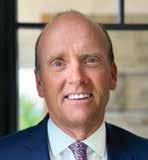
Kevin was with KPMG for 36 years, with 26 years as an audit partner. For the first 31 years of his career, Kevin was in client service in KPMG’s Salt Lake City audit practice, where he audited and advised public and private companies across a variety of industries and served as the lead audit partner or senior account executive for numerous publicly traded companies. For the last five years, he took a firm leadership role in the National Risk Management practice in New York. In this role, he managed the development, implementation, and monitoring of the firm’s risk management practices. Kevin retired from KPMG on December 31, 2024. In January 2025 he joined the Board of Directors for Bank of Utah. Since retirement he loves golfing, swimming, and skiing with his grandchildren.

Kent worked in public accounting, and has been a CEO, COO, CFO, GM, or Managing Member for several companies, retiring in 2022 as the CFO for BambooHR. Kent has also worked as a venture capital partner, expert witness, and court appointed receiver. He served on several UACPA committees, including 14 years on the Annual Conference Committee where he also led as the chair. He has presented at several UACPA conferences. Kent and his wife, Arlene, have five children and 20 grandchildren.
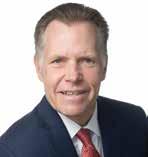
Mark received a bachelor’s degree in accounting from Utah State University and began his CPA career in 1989. He spent 12 years with two different CPA firms in Salt Lake City while working in both the audit and tax departments. In 2000, he joined Jones Simkins LLC in Logan as an audit partner, and in 2011, he was assigned to be the firm’s managing partner. Under his management the firm grew significantly in both revenue and employees and opened a second office in Salt Lake City in 2013. In 2022, with over 33 years of experience, Mark retired from Jones Simkins LLC, and began Birchcreek Consulting LLC, where he continues to serve clients on a part-time basis. Mark and his wife, Colleen, are the proud parents of three children and grandparents of an incredible grandson.

Paul is a University of Utah graduate, past president of the UACPA, and a former governing council member of the AICPA. He has served as the chair of the Utah CPA Foundation. He currently serves as the president of the Heber Valley Heritage Foundation, fulfilling a lifetime dream of preserving and cultivating the heritage and culture of his hometown. Paul started in public accounting, but left to join Price Development Company. The Company went public in 1994, and he served as Vice President, Chief Investment Officer, and Secretary with JP Realty, Inc. (JPR), a publicly traded real estate investment trust. After JPR merged with General Growth Properties in 2002, Paul served as President & COO of Q10 Capital. In 2006, Paul joined Q10|Bonneville Mortgage Company as a vice president and loan officer. He also served as vice president and relationship manager in the Salt Lake City office of Wells Fargo Bank and subsequently as the owner and principal of Ricks Creek Consulting, LLC.
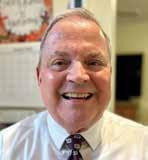
Bryan graduated Magna Cum Laude from the University of Utah with a bachelor’s degree in accounting in 1977. He was hired at Haynie and Company and spent the next 11 years there. He then went to work as a CFO/controller for a concrete and sand and gravel company, an excavation and pipeline company, a 146 room hotel on the Oregon Coast and a mill and cabinet company. Bryan then joined forces with Henry VanTienderen in the firm that became VanTienderen, Carter and Bolander in 1997 and worked there until his retirement in November 2020. As part of that transition, the name of the firm was changed to VCB, PC. Bryan has served on several UACPA committees in addition to serving as president in 2006–2007. He also served as a member of the AICPA Council. During the past several years, Bryan has continued his service as a member of the UACPA Leadership Council. In connection with his work on the Financial Literacy Task Force, Bryan was honored with the Hand Up Award from the Salvation Army in 2009. Bryan lives with his wife, Jean, in Murray, Utah. They have five children, fourteen grandchildren and one great-grandchild.

Madi’s love for tax and accounting began during her time as a business owner, when she experienced firsthand the stress and overwhelm that comes from not fully understanding the financial side of a company. That challenge inspired her to pursue accounting, where, in just four years, she’s grown from a junior position to tax director at Incite Tax. Along the way, she’s helped scale the tax division from 20 to 120 accountants and contributed to the firm earning an Inc. 500 award this past year. She is passionate about the industry and excited to see how she continues to grow in her career.

McKenna is a recruiting manager at Tanner LLC. She holds both a bachelor’s and master’s in accounting from the University of Utah. Her professional journey started in the world of tax services, but she soon discovered her passion for mentoring up-and-coming professionals as they navigate the complexities of the accounting industry. McKenna’s diverse experience spans from boutique to large multinational firms, including a tenure at one of the Big Four. She enjoys using her experience to help others discover career paths, areas of specialization, and work environments where they can succeed.
McKenna and her husband, Jim, happily embrace life as DINKS with two spoiled dogs who run the household. When she’s not working, you’ll find her lifting weights, trying a new restaurant, diving into a good book, or indulging in a well-deserved shopping spree.

As an advisory partner at Squire, Megan specializes in client accounting services and QuickBooks consulting, particularly for product-based companies. She has been named a Top 100 QuickBooks® ProAdvisor by Insightful Accountant for 10 straight years.
Beyond her client work, Megan has been a driving force in advancing workplace equity. Drawing from her own experience balancing motherhood and career growth, she helped pioneer flexible and remote work policies, ensuring women could remain on track professionally while raising families. She also championed Squire’s sponsorship program, pairing women with firm leaders to foster mentorship and advocacy. Megan’s leadership extends into the community where she has served as president and board member of the Women’s Business Network of the Utah Valley Chamber of Commerce.
Megan lives in Spanish Fork, with her husband and three teenagers. She can be found on the softball field or on the volleyball court playing or coaching in her spare time. She enjoys listening to books, watching crime dramas, and spending time with family.
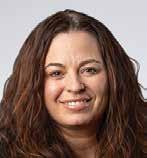
Erika is the office managing partner of KPMG’s Salt Lake City office and a leader in their Private Enterprise practice. She has more than 24 years of experience advising public and privately held entities with extensive experience with public companies. Erika’s primary area of expertise includes integrated audit services, IPO readiness services, acquisitions including due diligence, technical accounting matters, and financial reporting. Erika has significant experience serving public, private equity and venture backed companies, including taking companies through an initial public offering. She is also involved with KMPG’s IPO readiness and Quantum Shift conferences. She is the lead partner on KPMG’s IPO related courses and has significant experience assisting companies in preparing for liquidity events. She has also served as a trainer, performance manager, is involved in KPMG’s recruiting process and is a mentor for KPMG’s younger professionals.
The following individuals were licensed between August 2022 and July 2025. They received a certificate and recited the Oath of a CPA led by Mike Blackburn at the annual Inauguration & Awards Banquet.
Daniel Grant Anderson, CPA
Emily Anderson, CPA
Travis Bartling, CPA
Mark Boucha, CPA
Sumitra Budhathoki, CPA
Chad Bulloch, CPA
Alysja Call, CPA
Steve Carter, CPA
Vanessa Coburn, CPA
Cody Copitzky, CPA
Kyle Cremeans, CPA
Tyler Stockton Dean, CPA
Kirstyn Marie Dewsnup, CPA
Elizabeth Doney, CPA
Ry Edwards, CPA
Scott Felsted, CPA
Emily Fowles, CPA*
Ayanda M. Godi, CPA
Valarie Grow, CPA
Madison Hirase, CPA
Sierra Hoggatt, CPA
Matthew Hopkins, CPA
Jayson Holt, CPA
Qiuhong Huang, CPA
Steve Hunt, CPA
Ma. Irene Cristina Victa Jalandoni, CPA
Paul John Chua Jalandoni, CPA
Emylee Jenson, CPA
Oliver Josué Toledo Jiménez, CPA
Matthew Johansen, CPA
Kollin Keller, CPA
Austin Kelsch, CPA
Kaleb Lewis, CPA
Whitney Lloyd, CPA
Corban Lunt, CPA
Laramie Markham, CPA
Jacob Meyer, CPA
Kendall Mortensen, CPA*
Richard Nordgran, CPA
Jaci Peterson, CPA
Hyrum A. Portlock, CPA*
Emily Powell, CPA*
Rebecca Reed, CPA
Carlos Alberto Alvarez Rojas, CPA
Hannah Rosell, CPA
Christine Rowley, CPA
Joshua Shelley, CPA
Jace Southwick, CPA
Sam Steffensen, CPA
Kevin Stewart, CPA
Jack Jones Thomas, CPA
Aaron David Wheelwright, CPA
Nathaniel Wheelwright, CPA
Andrew Wilkins, CPA
Candice Wood, CPA
* Denotes individuals who were recognized with an Outstanding Student Award from the UACPA





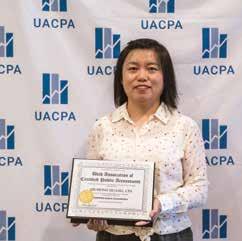


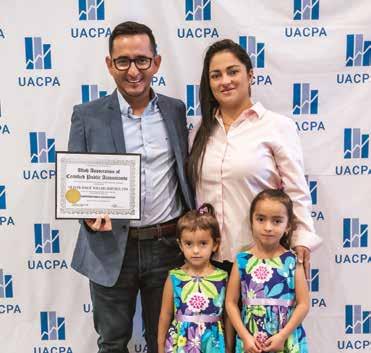
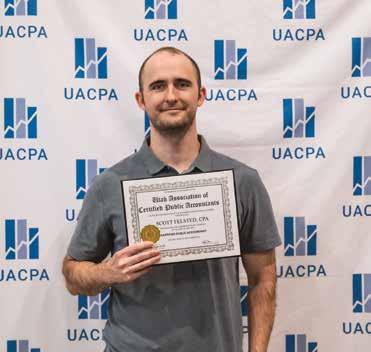
Every year, the UACPA Campus Ambassadors represent the association and the profession by holding activities, events and learning opportunities about careers in accounting and the path to become a CPA. This year’s ambassadors have been actively recruiting new student members and hosting mock CPA Exams.
UTAH VALLEY UNIVERSITY




UTAH TECH UNIVERSITY

WEBER STATE UNIVERSITY


UNIVERSITY OF UTAH


SOUTHERN UTAH UNIVERSITY

UTAH STATE UNIVERSITY -

More than 50 teens across Utah participated in the annual summer camp that introduces high school students to accounting careers while experiencing campus life. The UACPA partners with Weber State University to provide professionals and funds to support the annual event.








Congratulations to the following individuals who were approved for membership in the UACPA as of Aug. 31, 2025.
Kyle M. Bybee
BPM LLP
Lisa Nitchman
Brigham Young University –MSB Deans Office
Quinn M. Johnson
Rebecca Park CMP
William Perry
Grace Company
McKenzie Harris
Carey Pullan
Haynie & Company
Travis Bartling
N&D Tax and Advisory, LLC
Jessica Rimmasch
OC Tanner
Kevin Whitmer
Ortho Development Corporation
Christopher Lancaster
Sadler, Gibb & Associates
Cody Copitzky
Squire & Company, PC
Joni Edwards van Muijen
Tanner LLC
Lily Zhang
The Cholangiocarcinoma Foundation
Stacey Garrett University of Utah
Nicholas Peterson Zions Bancorporation
Jordan Hansen
Ryan David
Brigham Young University
Sophia T. Brammer
Ryder Hansen
Brian Rawlinson
Southern Utah University
Lupe Neeley
Sommar Johnson
University of Utah
Royce M. Bonds
Christian R. Rich
Anwar Shelali
Isaiah Skye L. Barker
Utah State University
Luke C
Utah Valley University
Aiden Mansfield
Robert Walker
Ethan Sims
Melissa A. Bonham
Weber State University
Meagan Waldrip
Western Governors
University
Mason Gregory
Dustin Davis
Kylie Girsberger
Brian R. Thull
Westminster University
Kris L. Ortega
Kim Howes
Baylee L. White
Other
Nikolas Aiello
Parker A. Johnson
Nikita C. Bruno

•
•
•
•
Tell us about your employment changes or what’s been happening at your firm. Send your news to Amy Spencer, as@uacpa.org

Katrina Baird has been announced as the finance director for the medical devices division of Moog Medical. She joined Moog in 2018 after working at Eide Bailly as an audit manager. Katrina holds a bachelor’s in accounting from the University of Utah and an MBA from Westminster University.
In September, WSRP joined the Richey May national platform as part of a merger that brought together four accounting and advisory firms. “By combining our strengths, we’re building something greater than any one firm could achieve alone: a platform with the scale to grow faster, the resources to serve clients better, and the culture to create more opportunities for our people,” they said in a press release. “With this strategic move, we are adopting the Richey May name, a brand known for its strong reputation and deep industry expertise.”
Haynie was named a 2025 Inside Public Accounting Top 100 Firm. They secured the No. 91 spot based on U.S. net revenue, marking another year of continued growth and excellence. The Top 100 list is considered a benchmark for professional excellence, highlighting firms that demonstrate strength in strategy, innovation, and client service. Haynie also recently announced its merger with The Simple Numbers, a leading provider of business consulting and ERP implementation services.
Moss Adams united with Baker Tilly, forming a firm positioned to create an industry-defining advisory and accounting firm. Baker Tilly CEO Jeff Ferro will serve as the CEO of the combined firm through his retirement at the end of the year. Moss Adams CEO, Eric Miles, will be assuming the role of Baker Tilly’s CEO on January 1, 2026.
Arthur John Miller
Sept. 27, 1945 – Sept. 30, 2025
Member since 1975
Joel Francis Sadler
Aug. 15, 1954 – Jan. 22, 2025
Member since 1999

Tell us about your new job, recent firm developments, and key highlights. We love to celebrate your success!
Send news to Amy Spencer, as@uacpa.org
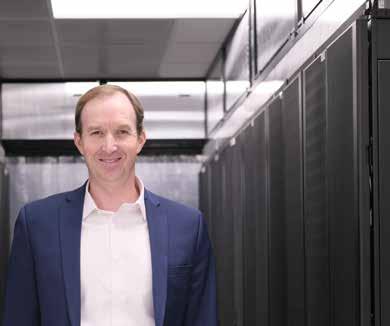


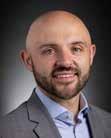

“During the fall, there is nothing quite like watching a live college football game. From the moment the teams take the field to the thunderous roar of the crowd, the sheer energy is infectious. I love sharing the experience with my kids, complete with the time-honored tradition of game-day junk food.”
“To escape some of the insanity that is real life, and as a huge competition reality TV fan, I have been preparing for the newest season of ‘Survivor’ by listening to all of the RHAP Podcasts for deep dives for season 49.”
“There is nothing better than when you have a book that you just can’t put down (except for the consequences of staying up way too late reading it). I recently read 'Project Hail Mary' by Andy Weir. It was gripping and funny. I’ve also enjoyed ‘Dark Matter’ by Blake Crouch and the Lincoln Lawyer Series by Michael Connelly.”
“I listen to the Marketplace podcast daily for business and economic news. Kai Ryssdal does a fantastic job in a way that’s sharp and accessible. I also finished HBO’s Chernobyl, which is a gripping reminder that disasters aren’t just technical failures, but failures of governance, information, and incentives. It shows why transparency and empowering truth-tellers/whistleblowers remains essential.”
“I’ve been reading ‘More Great Work’ by Michael Bungay Stanier. It focuses on shifting from routine tasks to meaningful projects that make a real difference. It’s been a reminder for me to step back, assess where my time goes, and be more intentional about focusing on high-impact work.”


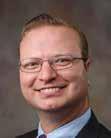


“Lately, I’ve been diving into podcasts on ADAS (Advanced Driver-Assistance Systems) calibration, and one I’d recommend is The Collision Vision with Cole Strandberg and Greg Peeters, CEO of Car ADAS Solutions. It’s an easy listen that highlights why ADAS matters and where it’s headed. As someone new to this space, I’m learning a ton! ”
“I love the author John Maxwell. His books have influenced me greatly. I am reading his book, ‘Jesus, The High Road Leader.’ It provides insight into how we can lead by taking the high road through love of God and our fellow man. Something that seems lost in a world of bitterness, anger, and hate.”
“While I regularly watch the AICPA Town Hall Series, I am currently enjoying the book ‘The Vegetable Gardener’s Bible’ by Edward C. Smith.” Clinton Armstrong, CPA
“As I am not currently reading any books or listening to podcasts, I like to seek input and guidance from colleagues and staff over lunch. I find the conversation can be tailored to my firms and/or my current needs.”
“A podcast my wife and I enjoy is ‘The Art of Manliness.’ Despite the name, they discuss various topics of how to be a well-rounded, good person — covering a wide range of topics.”
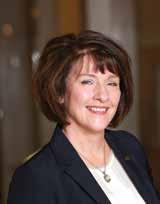
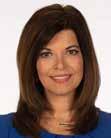
“I’ve been listening to a book called ‘Quiet: The Power of Introverts in a World that Can’t Stop Talking’ that discusses the power of introverts, how we see introverts, how they see themselves and the importance of integrating the power of both introverts and extroverts into an ever-changing world.”
“I recently watched Netflix’s ‘Unknown Number: The High School Catfish.’ By the end of this true-crime documentary I was sickened by the whodunit twist. Highly recommend!”
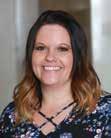
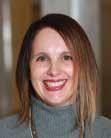
“I just finished watching ‘The Summer I Turned Pretty’ on Amazon Prime. I loved it so much, I want to watch it again. I highly recommend if you are into teen romances.”
“I often discover books via podcast interviews, which is how I found ‘Unreasonable Hospitality.’ A renowned NYC restaurateur shares heartwarming stories showcasing his team leadership and the power of giving customers the razzledazzle, all leading him to earn the honor of becoming the No. 1 restaurant in the world.”


Micro-retirement is defined as taking an extended break for rest, travel, or personal development before returning to the workforce. More than a vacation, micro-retirement is a response to burnout that allows workers to step away and recharge. Unlike other alternatives, individuals typically remain employed during a micro-retirement, with the intention of returning to the same role or employer.
The way people think about work is changing. Many of today’s workers would rather take several microretirements during their working years to preserve work-life balance rather than follow a traditional career trajectory with permanent retirement at age 65 or older.
Millennials and Gen Z think differently about work than their parents did. For these younger workers, work-life balance isn’t a nice-to-have — it’s essential. Micro-retirements can help them achieve that critical work-life balance.
• Gen Z: Mental health is a top priority for Gen Z and they value the ability to work from anywhere. Among Gen Z women, 74% say that watching their parents burn out has motivated them to find a better path forward. This generation of workers anticipates regularly redefining how they view work, and they’re willing to step away to achieve the right balance.
• Millennials: For millennials, micro-retirements may serve as calculated investments in their future rather than spontaneous breaks. Caught between student loans, family responsibilities, and uncertain retirement prospects, they may take these breaks strategically to upskill, change career directions, or simply prevent burnout before it derails their long-term goals.
• Older Generations: Among older workers, taking full retirement is still the preferred norm. Older generations often view the micro-retirement trend with skepticism, preferring to step away from the workforce permanently once they reach retirement age. Still, that view may shift as workforce and economic changes impact the projected cost and age of retirement.
For employers, micro-retirements represent an opportunity to invest in your people and demonstrate that you value more than just their productivity. Here’s why micro-retirement makes good business sense:
• Increased employee loyalty
• Refreshed and re-energized workforce
• Smoother succession planning
• Knowledge retention and transfer
• Reduced burnout and turnover
Micro-retirements are still relatively new to the business world, and employers may have legitimate concerns about how to implement them effectively. The good news is that these challenges are manageable with smart planning.
Choosing the right employee benefits package supports your team and strengthens your business. Whether you’re building a plan from scratch or refining what you already offer, Paychex is here to help.

Julie Caplan Marketing Content Program Manager



Debbie Dujanovic joined the UACPA in July as the membership engagement manager. Born and raised in Phoenix, AZ, Debbie says she tested her tolerance for desert summers on the softball field and tennis courts. After earning a bachelor's in broadcast journalism from Arizona State University, she moved to Utah in 1990 to continue her career as a TV news reporter at ABC4. “It’s in Utah I met my former husband and gave birth to three — now adult — children.”
What have you been doing before joining the UACPA? Before joining the UACPA, I spent decades in journalism and public affairs — as a television news reporter, investigative journalist, radio talk show host, and spokesperson for the FBI Salt Lake City Division. Most recently, I retired after more than 20 years with KSL TV and KSL NewsRadio.
How do you spend your free time? I spend my free time paddle boarding, hiking, taking long walks, reading, listening to podcasts, at baseball games, traveling, roadtripping, and, above all, hanging out with my three kids when they have spare time to spend with me! Yes, I squeeze in sleep too.
What are your professional and personal goals? My current professional goal is to learn the art of providing excellent customer service to our UACPA members. So, please know my inbox doubles as a suggestion box, and I welcome your input and feedback! My personal goal is to experience more international travel.
What famous person/people, dead or alive, would you invite to a dinner party? Robert Redford. To me he was more than an iconic actor and director; he was an upstanding Utah resident with an extraordinary vision for preserving lands in our beautiful state.
What is something that would surprise people to know about you? I grew up working in our family foundry in Phoenix. As a teenager, my dad taught me how to sandblast metal parts we produced for the U.S. military. On a side note, if you’ve seen the massive lion in front of the MGM Grand in Las Vegas, that lion was cast at our foundry in the 1990s as well as the 2002 Olympic clock that sits between the Delta Center and KSL.
What recent purchase under $100 has impacted you the most? An Instant Pot. I use it to make Greek yogurt each week!
What advice do you live by? Don’t invite trouble you don’t have. A friend shared this with me after her sister went into remission from stage 4 colon cancer. A doctor reminded her she could stop worrying — her cancer was gone. I was so moved by this advice and how her doctor had framed it that I’ve made it part of my daily mindset. n
More than 80 golfers joined us for the annual UACPA Golf Tournament on Thursday, Aug. 21, at Eaglewood golf course in Bountiful. Thank you to the sponsors, Zoho (lunch sponsor), Central Bank (hole in one sponsor) and hole sponsors Haynie & Company, Workstream, CSA Partners, Canopy Baysora, Avalara, Weber State University, Veritax Advisors, Ping Assistant, TaxSnap.ai and supporting sponsors Netwize, Paychex, CPA Charge and CAMICO.





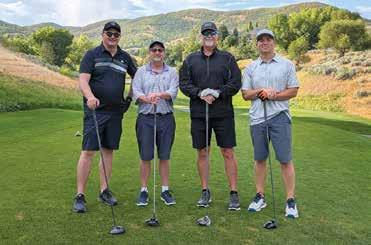
Congratulations to the award winners (page 22) who were honored at the UACPA’s “Shellebration” at the Loveland Living Planet Aquarium on Thursday, Sept. 18. See more photos from the event at uacpa.org/awards25.

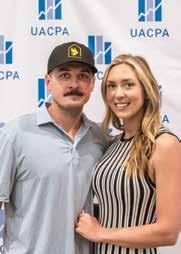







Presented by K2 Enterprises, this focused virtual conference for accounting, finance, and business professionals delivers the essential technology strategies you need now.
Topics Include:
• Taking a Fresh Look at Teams
• Top Ten Productivity Booster Apps in Microsoft 365
• Expense Reporting Automation
• Collaboration Tools and Best Practices
• Automation – Beyond The Basics With The Microsoft Power Platform
• Excel Tips – Today’s Best Features
• Data Security And Privacy Issues And Solutions
• Client Accounting Services For CPA Firms: Strategies For Growth And Success
• CRM – The Ultimate Business Automation Tool
• Taking Another Look at Power BI
• What’s New With QuickBooks
• AI – Better Prompts, Better Results
• Next Level Home Networking
• After QuickBooks, What’s Next
• AI – Security And Privacy Issues
• Ten PDF Tips You Need to Know
• Ripped From The Headlines: Lessons From Interesting Tech Crimes
See the agenda and register

DEC. 11 – 12

This two-day conference provides access to critical knowledge across assorted categories that matter most to your practice. Don’t miss out on the industry updates you need to finish the year strong and plan for 2026.
Topics include the current landscape of the Key developments in the private equity market, strategies in estate planning, a briefing on legislative actions that impact the accounting profession, an overview of the state of the economy, and more.

SHERATON HOTEL + VIRTUAL 16 HOURS OF CPE (1 HOUR OF ETHICS) SPONSORED

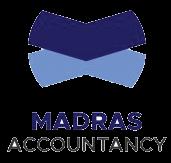
Utah Practice For Sale: Gross Revenues Shown: St.George, UT CPA Practice ~ $1M; Salt Lake City / Murray, UT CPA Practice ~$1.2M
New Listings Coming Soon! For more information, please call 1-800-397-0249 or visit www. AccountingPracticeSales.com to see listing details and register for free email updates to be notified first of new/ upComing listings.
THINKING OF SELLING YOUR PRACTICE? Accounting Practice Sales is the leading marketer of accounting and tax practices in North America. We have a large pool of buyers, both individuals and firms, looking for practices now. We also have the experience to help you find the right fit for your firm, negotiate the best price and terms and get the deal done. For more information, please visit our website at www.accountingpracticesales.com
Interested in Buying a Practice? See local and nationwide listings at www.AccountingPracticeSales.com and register for free email updates.
To place your classified advertisement in The Journal Entry, contact Amy Spencer, as@uacpa.org.
To view and post job listings, visit uacpa.org/jobs. Create your own post by selecting the yellow button in the upper left corner that says “Add Job Posting.” Posting is free for members and posts are active for 60 days.
Jobs currently posted
• University of Utah Financial ServiceBond/Investments Account
• University of Utah Financial Services - Fixed Assets
• Director of Finance
• VP Controller
• Successor Tax Accountant
• Tax Manager
• CPA Firm Job Opening

The UACPA lLeadership supports and challenges members through advocacy, professional education, leadership development, networking, and community service, to help them succeed in a competitive and changing world.
At the UACPA, our vision is to be a world-class professional association essential to our members.
We unite a vibrant community of CPAs to enhance the success of our members and champion the values of the profession; Integrity, Competency, and Objectivity.
Advocacy: The UACPA represents the profession at the legislature and other regulatory bodies and promotes the value of the CPA to employers, the business community, and the public at large.
Leadership & Service: The UACPA provides leadership and service within the profession, within the UACPA, and within the community.
Professional Development: The UACPA supports and encourages continuing education and leadership development.
Professional Community: The UACPA reinforces peer accountability to encourage members to maintain integrity and high ethical standards. We provide memberto-member networking opportunities and networking opportunities with other professions. We value belonging to a distinguished organization and believe that we serve as the primary resource and point of contact for Utah CPAs.
Diverse Population Outreach: The UACPA believes in reaching out to under-represented populations, those returning to the profession or choosing it as a second career, and other professions.
Congratulations to the firms and businesses currently participating in the UACPA’s 100% membership program. This demonstrates their commitment to the profession, to the association’s high ethical standards and lifelong learning.
• A+P CPAs
• Baker Tilly
• CBIZ & CBIZ CPAs
• CLA (CliftonLarsonAllen)
• CMP
• Davis & Bott, Certified Public Accountants, L.C.
• Eide Bailly
• Haynie & Company
• HBME
• HintonBurdick CPAs & Advisors
• Jones Simkins LLC
• Richey May
• Sadler Gibb
• Savage Esplin & Radmall, PC
• Squire & Company, PC
• Tanner LLC
• Teuscher Walpole, LLC
• Utah Office of the State Auditor

Firms with 10 or more full-time CPAs are eligible to be a part of the 100% membership program. Call our membership team to sign up, 801.466.8022.




